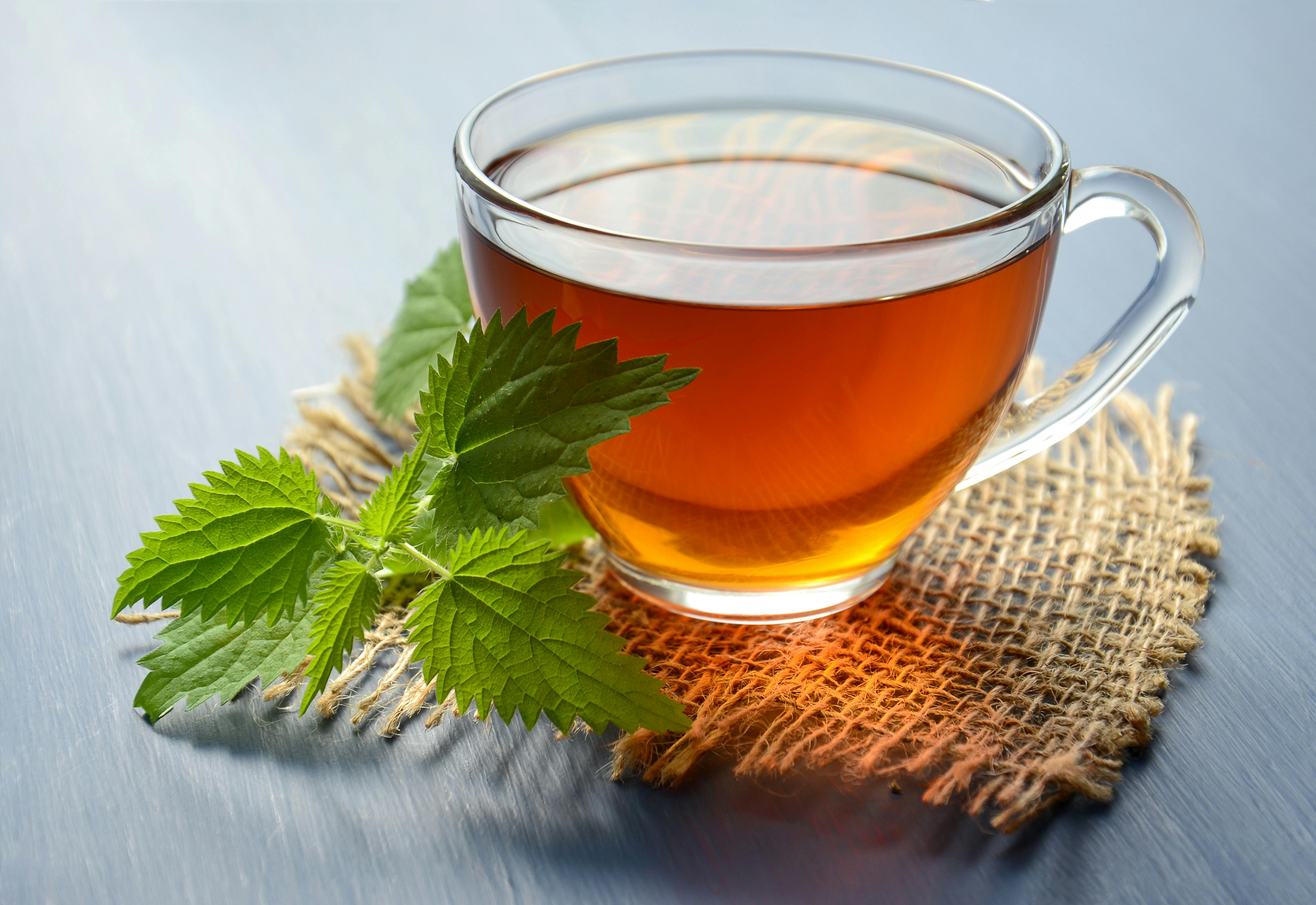Green Tea - The Superfood Everyone Needs to Know About!
5 minuteRead

Although tea has been associated with health benefits for centuries, its medicinal properties have only recently been scientifically investigated. To get the most out of their cups of tea, one must recognise the healthy power of tea.
Tea's health benefits are largely due to its high content of flavonoids, which are plant-derived antioxidants. Green tea is one of the healthiest beverages and the best source of a substance known as 'Catechins.' Catechins are more effective than vitamins C and E at preventing oxidative cell damage and appear to have additional disease-fighting properties.
Of course, there is no single superfood that can protect you from diseases; however, how healthy your eating habits are and how active you are can make a significant difference.
When shopping for Green Tea, look for brands that use all-natural ingredients and do not contain any artificial preservatives. Also, whenever possible, choose these two types of green tea:
(I) Matcha: Green tea leaves are ground into a fine powder that can be whisked into hot water for tea. Because you consume the actual leaves, you get more antioxidants than with other types of green tea.
(II) Hojicha: A type of green tea that has been roasted until it is dark brown. Hojicha contains less caffeine than other teas because it is picked at the end of the season and roasted at a higher temperature.

Here are 7 possible health benefits of green tea.
1. Contains beneficial bioactive compounds
Green tea is more than just a refreshing drink.
The green tea plant contains a variety of beneficial compounds that are incorporated into the final product.
Tea contains polyphenols, which are natural compounds with health benefits such as reducing inflammation and aiding in the fight against cancer.
Epigallocatechin-3-gallate is a catechin found in green tea (EGCG). Catechins are natural antioxidants that aid in the prevention of cell damage and provide additional benefits.
These substances have the ability to reduce the formation of free radicals in the body, thereby protecting cells and molecules from damage. These free radicals contribute to ageing and a variety of diseases.
One of the most potent compounds in green tea is EGCG. Its ability to help treat a variety of diseases has been studied. It appears to be one of the primary compounds responsible for green tea's medicinal properties.
Green tea also contains trace amounts of minerals that can be beneficial to your health.
Choose a higher quality brand of green tea over a lower quality brand because some lower quality brands may contain excessive amounts of fluoride.
Having said that, even if you choose a lower-quality brand, the benefits outweigh the risks.
2. It has the potential to improve brain function.
Green tea may help improve brain function in addition to keeping you alert.
Caffeine, a well-known stimulant, is the main active ingredient.
It doesn't have as much caffeine as coffee, but it's enough to elicit a response without causing the jittery effects associated with excessive caffeine consumption.
Caffeine has an effect on the brain by inhibiting an inhibitory neurotransmitter known as adenosine. This increases neuronal firing and neurotransmitter concentrations such as dopamine and norepinephrine.
Caffeine has been shown in numerous studies to improve various aspects of brain function, including mood, vigilance, reaction time, and memory.
Caffeine, however, is not the only brain-boosting compound found in green tea. It also contains the amino acid L-theanine, which has the ability to cross the blood-brain barrier.
L-theanine stimulates the inhibitory neurotransmitter GABA, which has anti-anxiety properties. It also increases dopamine and alpha wave production in the brain.
Caffeine and L-theanine have been shown in studies to have synergistic effects. This means that combining the two can have particularly potent effects on brain function.
Green tea may provide a much milder and different type of buzz than coffee due to the L-theanine and the small amount of caffeine.
When compared to coffee, many people report having more stable energy and being much more productive when they drink green tea.

3. Boosts fat burning
If you look at the ingredients list of any fat burning supplement, you will most likely find green tea.
This is because green tea has been shown in studies to increase fat burning and metabolic rate. Green tea extract increased the number of calories burned by 4% in one study involving 10 healthy men. In another study involving 12 healthy men, green tea extract increased fat oxidation by 17% when compared to a placebo.
However, some studies on green tea have found no increase in metabolism, implying that the effects may vary depending on the individual and the study design.
Caffeine may also improve physical performance by mobilising fatty acids from fat tissue and converting them to energy.
Caffeine may improve physical performance by 11–12%, according to two separate review studies.
4. Antioxidants may reduce the risk of certain cancers.
Cancer is caused by uncontrolled cell growth. It is one of the leading causes of death in the world.
According to research, oxidative damage can cause chronic inflammation, which can lead to chronic diseases such as cancer. Antioxidants can aid in the prevention of oxidative damage.
Green tea contains a high concentration of antioxidants.
Green tea compounds have been linked to a lower risk of cancer in studies such as the ones below:
- Breast cancer. A meta-analysis of observational studies discovered that women who drank the most green tea had a 20–30% lower risk of developing breast cancer, one of the most common cancers in women.
- Prostate cancer. According to one study, men who drank green tea had a lower risk of developing advanced prostate cancer.
- Colorectal cancer. An analysis of 29 studies found that people who drank green tea had a 42 percent lower risk of developing colorectal cancer.
Many observational studies show that people who drink green tea are less likely to develop various types of cancer, but more high-quality research is needed to confirm these findings.
Avoid adding milk to your tea to reap the most health benefits. According to some studies, it may reduce the antioxidant value of some teas.

5. May protect the brain from aging
Green tea not only improves brain function in the short term, but it may also protect your brain as you age.
Alzheimer's disease is the most common cause of dementia in older adults and a common neurodegenerative disease.
Parkinson's disease is another common neurodegenerative disease that causes dopamine-producing neurons in the brain to die.
Several studies have found that the catechin compounds in green tea can have a variety of neuroprotective effects in test tubes and animal models, potentially lowering the risk of dementia.
6. May reduce bad breath
Green tea catechins are also beneficial to oral health.
Green tea catechins have been shown in lab studies to inhibit the growth of oral bacteria, but there is no evidence that drinking green tea has the same effect.
Green tea, on the other hand, appears to have some evidence that it can help with bad breath.
7. May help prevent type 2 diabetes
Type 2 diabetes has been on the rise in recent decades. Approximately one out of every ten Americans now suffers from the condition.
Type 2 diabetes is characterised by high blood sugar levels, which can be caused by insulin resistance or a lack of insulin production.
Green tea has been shown in studies to improve insulin sensitivity and lower blood sugar levels.
According to one study of Japanese people, those who drank the most green tea had a 42 percent lower risk of developing type 2 diabetes.
Tea drinkers had an 18% lower risk of diabetes, according to a review of 7 studies involving a total of 286,701 people.
Write, Record and Answer! Consume Unlimited Content! All you need to do is sign in and its absolutely free!
Continue with one click!!By signing up, you agree to our Terms and Conditions and Privacy Policy.










